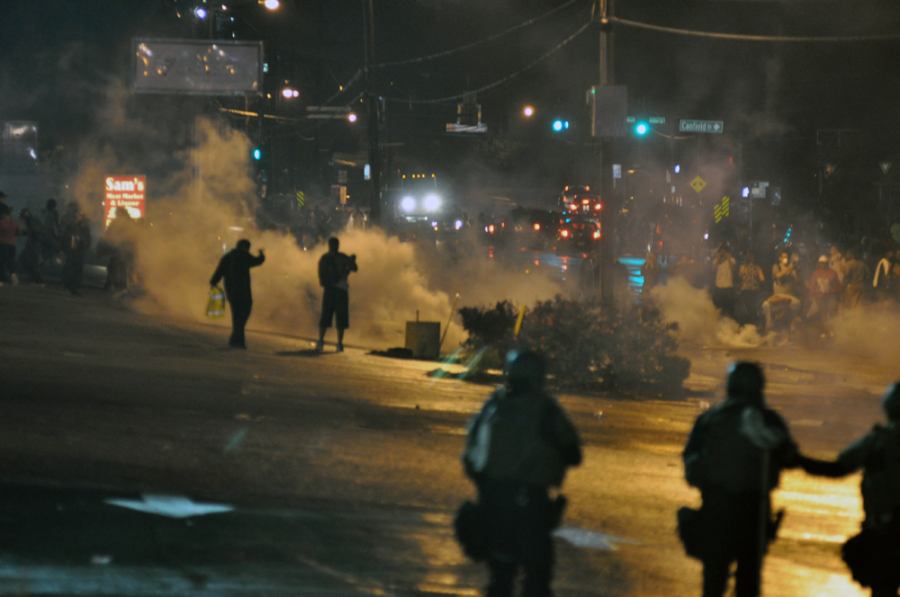The burning of Ferguson
January 14, 2015
Whether or not you believe Darren Wilson was justified in his actions that caused the death of 18 year old Michael Brown is not the issue at hand. Trying to encapsulate what is going on in our country by isolating this one event is absurd. Tens of thousands of people across the United States are not protesting due to the debatable murder of one man. The problem that exists in Ferguson, and all over America, is so much bigger than this one altercation.
Let’s set the stage in Ferguson, MO. An abundant 67% of the residents are black. 25% of these people live below the poverty line, which influences almost every aspect of their lives. As far as education is concerned, Normandy, the local school district, had 450 students transfer to the Howell School District in St. Louis last year, fleeing their own failing schools. The latter district is located in a mainly white, middle-class, suburban area. This was not done easily as many St. Louis residents opposed allowing these students to attend.
“I deserve to not have to worry about my children getting stabbed or taking a drug or getting robbed,” one white Howell mother said, according to latimes.com.
Within a year, these people found a way to send the Normandy students back. Normandy High School is, of course, where Michael Brown graduated 8 days before he was shot. Society is not telling these people the world is their oyster. Instead the message is one of limits and intolerance.
In turn, a mere 5.6% percent of the police force in Ferguson are black. Considering the demographics, this number is surprisingly low. Why? The answer is simple: white privilege. Think of a few factors that may contribute to becoming a police officer: education, ambition, monetary stability. If you’re white, you may take things for granted, but make no mistake, many racial minorities do not receive these luxuries.
The hashtag, #blacklivesmatter, spread like wildfire across the twittersphere. This may seem like an unnecessary truth, however we can see all throughout our society instances where institutions are neglecting this statement. Police brutality, unfair racial sentencing, discriminatory hiring practices, the list goes on and on.
White people, as a whole, do not experience these same difficulties. When you receive something your entire life, you might not necessarily take note of it. On the other hand, when you see other people receiving something that is not available to you, for no legitimate reason, it is hard to look past.
The protest began in Ferguson itself, but was not contained. All over the country, even the world, people were inspired by this incident to promote positive change. As students walked out of classrooms, and citizens shut down shopping malls on Black Friday, their message was heard loud and clear. They succeeded in blocking bridges and roadways, and even a few members of the St. Louis Ram’s football team showed their support. With mantras of ‘Hands up,’ ‘Shut it down,’ and ‘No justice, no peace,’ protesters voiced their discontent with the Ferguson decision.
In response to the civil disorder, which many have labelled as a riot, police bridled the crowd with tear gas and force, odd words to be associated with amity. As critics call for non-violence and reprimand the actions protesters take, they seem to forget that our country was founded through rebellion. Revolution is a proven way to enact change. The work of Ferguson protesters is not any less noble than the inciters of the Boston tea party. They have an admirable goal of racial equality, and are willing to take extreme measures to move their ideals forward.




